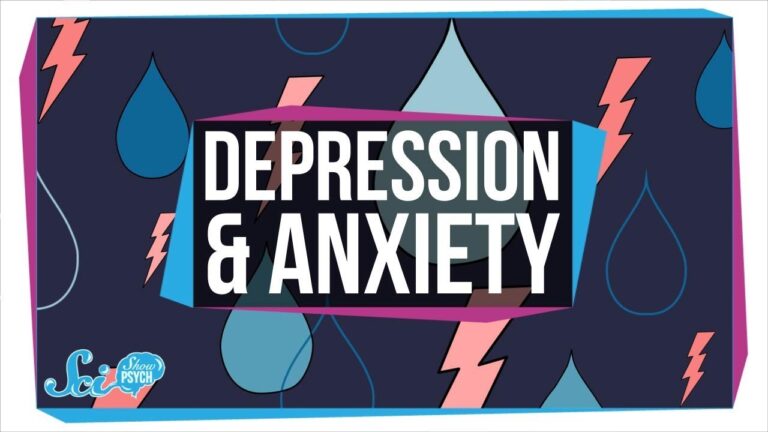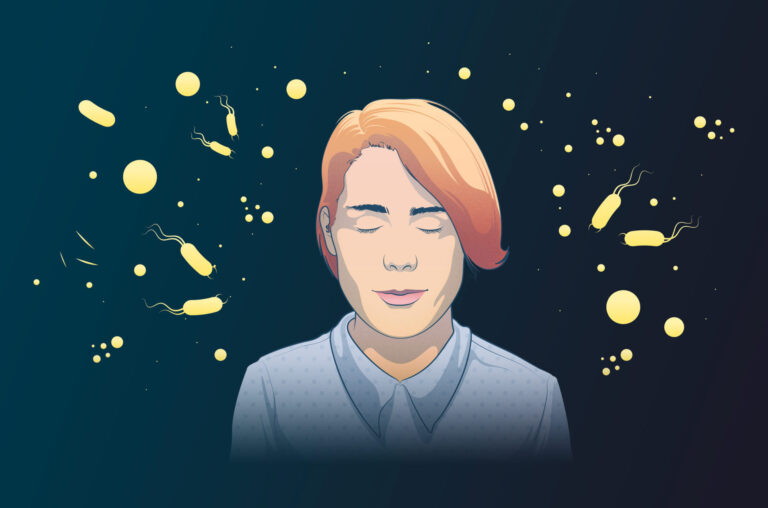How to Manage Nightfall and Its Effects on Your Sleep Quality

Causes of Nightfall and Its Impact on Sleep Quality

Nightfall, also known as nocturnal emission or involuntary ejaculation during sleep, is a common occurrence in males. It typically happens during adolescence and young adulthood when hormonal changes are at their peak. There are several factors that can contribute to nightfall, including:
1. Sexual arousal and stimulation: During sleep, the brain can release hormones and trigger erections, which may lead to ejaculation. This can occur due to sexual fantasies, dreams, or simply the buildup of sexual tension.
2. Increased sexual activity: Engaging in sexual activities, such as masturbation or sexual intercourse, can increase the likelihood of experiencing nightfall. The body may produce a surplus of semen, and nightfall occurs as a way to release the excess.
3. Psychological factors: Stress, anxiety, and emotional distress can also play a role in nightfall. These factors can disrupt sleep patterns and increase the likelihood of sexual arousal during sleep.
The impact of nightfall on sleep quality can vary from person to person. For some, it may have no significant impact on sleep, while for others, it can cause disturbances and affect overall sleep quality. It is important to note that occasional nightfall is considered normal and should not be a cause for concern. However, frequent or persistent nightfall can lead to fatigue, feelings of guilt or embarrassment, and may even interfere with daily functioning.
Understanding the Mechanisms of Nightfall and Sleep Disturbances
Nightfall, also known as nocturnal emission or wet dreams, is a natural physiological occurrence that typically affects males during adolescence and early adulthood. It is a spontaneous release of semen during sleep, usually accompanied by sexual dreams. While nightfall is considered a normal part of male sexual development, it can sometimes cause sleep disturbances and impact the overall quality of sleep.
The exact mechanisms behind nightfall and its association with sleep disturbances are not fully understood. However, several factors may contribute to this phenomenon. Hormonal changes, particularly increased levels of testosterone, play a significant role in the occurrence of nightfall. As testosterone levels rise during puberty, the body may produce more semen, which can result in spontaneous ejaculations during sleep.
Additionally, the frequency of nightfall may vary from person to person. Some individuals may experience it more frequently, while others may rarely or never have nightfall events. Stress, anxiety, and sexual arousal can also influence the occurrence of nightfall. Understanding the mechanisms that underlie nightfall and its impact on sleep quality can help individuals manage and cope with this natural phenomenon.
Recognizing the Signs and Symptoms of Nightfall
Nightfall, also known as nocturnal emission or wet dream, is a normal physiological occurrence that commonly affects males during puberty and adolescence. It refers to the involuntary release of semen during sleep, often accompanied by sexual dreams or fantasies. While this phenomenon is typically harmless and temporary, excessive or recurrent nightfall may indicate an underlying health concern.
One of the common signs of nightfall is waking up with wet or stained underwear, often accompanied by a sense of embarrassment or guilt. Additionally, frequent occurrence of erotic dreams or intense sexual fantasies during sleep can also indicate the occurrence of nightfall. Some individuals may experience feelings of fatigue, lethargy, or general weakness following a nightfall episode. Although nightfall itself is a natural bodily process, it is important to differentiate between normal occurrence and excessive or distressing episodes that may warrant further investigation or treatment.
It is worth noting that while occasional nightfall is considered normal and does not require medical intervention, persistent or repetitive occurrences can be an indication of an underlying health issue. By recognizing the signs and symptoms associated with nightfall, individuals can gain a better understanding of their own sexual health and seek appropriate guidance if needed. Understanding the causes, impact, and management of nightfall will be covered in subsequent sections of this article.
The Importance of Maintaining a Healthy Sleep Routine
Maintaining a healthy sleep routine is crucial for overall well-being and functioning. Research has consistently shown that a lack of quality sleep can lead to a range of negative consequences, including impaired cognitive function, mood disturbances, and increased risk of chronic health conditions such as diabetes and cardiovascular disease.
One of the key reasons why a healthy sleep routine is important is because it allows our bodies to regulate important physiological processes. During sleep, our bodies go through different stages, each serving a specific purpose. These stages include deep sleep, which promotes physical restoration and growth, and REM sleep, which supports cognitive function and memory consolidation. By consistently getting enough sleep and following a regular sleep schedule, we can ensure that our bodies have sufficient time to go through these crucial stages, leading to improved overall health and well-being.
In addition to the physiological benefits, maintaining a healthy sleep routine also plays a vital role in supporting mental and emotional health. Adequate sleep has been shown to enhance mood, reduce stress levels, and improve our ability to manage emotions effectively. On the other hand, chronic sleep deprivation or irregular sleep patterns can contribute to the development of mood disorders such as depression and anxiety. Thus, establishing a consistent sleep routine can help promote emotional stability and resilience, leading to improved mental health outcomes.
Creating a Relaxing Sleep Environment to Manage Nightfall
A relaxing sleep environment plays an integral role in managing nightfall and promoting better sleep quality. By creating a calm and soothing space, individuals can minimize external disturbances and optimize their chances of getting a restful night’s sleep. Here are some factors to consider when setting up a sleep-friendly environment:
1. lighting: Keep the bedroom dark and minimize exposure to bright lights, as light can interfere with the body’s natural sleep-wake cycle. Consider using blackout curtains or an eye mask to block out external sources of light. It may also be helpful to utilize dimmer switches or low-wattage bulbs for bedside lamps to create a peaceful ambiance.
2. Noise Control: Noise can disrupt sleep and contribute to nightfall. Therefore, it is important to minimize external sounds as much as possible. Use earplugs or a white noise machine to mask disturbing noises such as traffic, barking dogs, or loud neighbors. Additionally, maintaining a tranquil atmosphere by implementing soundproofing techniques, such as sealing windows and doors efficiently, can contribute to a peaceful sleep environment.
Remember, a relaxing sleep environment serves as a crucial foundation in managing nightfall effectively. By optimizing the surroundings, individuals can create an atmosphere that promotes restful sleep and reduces the likelihood of experiencing nightfall disruptions.
Implementing Stress-Relief Techniques to Reduce Nightfall
When it comes to managing nightfall, implementing stress-relief techniques can be highly beneficial. Stress is known to contribute to an imbalance in the body’s hormone levels, which can potentially increase the occurrence of nightfall. By finding effective ways to manage stress, individuals may be able to reduce the frequency of these episodes.
One stress-relief technique that has been shown to be effective in reducing nightfall is mindfulness meditation. This practice involves focusing on the present moment and bringing attention to one’s thoughts and feelings without judgment. Research has suggested that regular mindfulness meditation can help individuals manage stress and anxiety, which in turn may lead to a decrease in nightfall episodes. Additionally, engaging in deep breathing exercises and relaxation techniques such as progressive muscle relaxation or guided imagery can also help promote a state of calmness and reduce stress levels, potentially decreasing the occurrence of nightfall.
Engaging in Regular Physical Exercise to Improve Sleep Quality
Engaging in regular physical exercise has been shown to have a positive impact on sleep quality. Numerous studies have demonstrated that individuals who engage in moderate to vigorous exercise on a regular basis experience improved sleep duration and quality. One study published in the journal Sleep Medicine found that individuals who engaged in at least 150 minutes of moderate-intensity aerobic exercise per week reported fewer sleep disturbances and increased sleep efficiency compared to those who led a sedentary lifestyle.
The positive effects of exercise on sleep quality can be attributed to a number of factors. Firstly, physical activity promotes the release of endorphins, which are natural mood boosters that can help reduce stress and anxiety. By decreasing psychological distress, exercise can contribute to a more peaceful and relaxed state of mind, promoting better sleep. Additionally, exercise has been found to regulate the circadian rhythm, the internal biological clock that regulates sleep-wake cycles. Regular physical activity can help synchronize the circadian rhythm, promoting a more consistent sleep pattern.
Avoiding Stimulants and Substances that Can Aggravate Nightfall
While nightfall is a natural bodily function, certain substances can potentially exacerbate its occurrence. It is important for individuals experiencing nightfall to avoid stimulants and substances that may lead to an increase in frequency or intensity of these episodes. One such substance to steer clear of is caffeine, which is commonly found in coffee, tea, energy drinks, and some medications. Caffeine acts as a stimulant and can disrupt sleep patterns, making it more likely for nightfall to occur. It is recommended to limit or avoid caffeine consumption, particularly in the evening, to promote better sleep quality and minimize the effects of nightfall.
Alcohol is another substance that can have a negative impact on nightfall. While alcohol can initially induce drowsiness, it ultimately disrupts the sleep cycle, leading to less restorative sleep. This disruption can potentially contribute to an increase in nightfall episodes. It is advisable to refrain from excessive alcohol consumption, especially before bedtime, in order to maintain a healthy sleep routine and reduce the occurrence of nightfall. Additionally, individuals may also want to be mindful of other stimulants, such as nicotine and certain medications, which can have similar effects on sleep patterns and may exacerbate nightfall symptoms.
Exploring Natural Remedies and Supplements for Nightfall Management
Exploring natural remedies and supplements for nightfall management can be a viable option for individuals seeking non-pharmacological approaches to address this common concern. Some natural remedies have been found to contain properties that can help regulate the reproductive system and potentially reduce nightfall occurrences. For instance, herbs like Ashwagandha and Shilajit have been traditionally used in Ayurvedic medicine for their potential to enhance sexual health and improve overall well-being.
Additionally, certain supplements, such as Zinc and Vitamin B6, have been researched for their potential role in maintaining a healthy reproductive system. Zinc is involved in the production of testosterone and may help support proper hormonal balance, while Vitamin B6 is known to assist in the regulation of hormone levels in the body. While these natural remedies and supplements may hold promise, it is important to consult with a healthcare professional before incorporating them into your routine, as individual needs and underlying health conditions should be considered. Furthermore, the dosage and duration of use should be well-regulated to avoid any potential adverse effects.
Seeking Medical Help for Persistent Nightfall Issues
Seeking medical help for persistent nightfall issues is essential in cases where the problem becomes chronic or significantly affects the quality of life. While occasional nightfall is considered normal and harmless, frequent or intense episodes may warrant professional attention. Men experiencing persistent nightfall may find it beneficial to consult with a healthcare provider, such as a urologist or a specialized sexual health expert, who can provide a comprehensive evaluation and offer appropriate guidance and treatment options.
In many cases, addressing the underlying cause of nightfall can help alleviate the problem. Medical professionals may conduct a physical examination and inquire about personal and family medical history to identify any potential contributing factors. Additionally, blood and urine tests may be performed to assess hormone levels and rule out any underlying conditions such as infections or hormonal imbalances. Seeking medical help also allows for a discussion about lifestyle factors, stress management techniques, and the potential role of medication or therapy in managing persistent nightfall effectively. Remember, consulting with a healthcare provider is crucial for an accurate diagnosis and tailored treatment plan to address persistent nightfall issues.
Understanding the Role of Diet in Managing Nightfall
A healthy and balanced diet plays a crucial role in managing nightfall. Certain foods and nutrients have been found to have potential effects on the male reproductive system and sleep quality. Incorporating these foods into your daily meals can help promote better sleep and reduce the frequency of nightfall episodes.
First and foremost, it is essential to consume foods rich in zinc. Zinc is an essential mineral that plays a significant role in the functioning of the male reproductive system. It is involved in the production of testosterone, a hormone that regulates sexual desire and performance. Research suggests that low levels of zinc may increase the likelihood of experiencing nightfall. To ensure an adequate intake of zinc, include foods such as oysters, beef, lamb, pumpkin seeds, and spinach in your diet. These foods are excellent sources of zinc and can help support reproductive health and reduce the occurrence of nightfall.
Additionally, incorporating foods rich in vitamins A and E may also be beneficial. These vitamins are powerful antioxidants that can help protect the reproductive organs from oxidative stress. Research indicates that oxidative stress can contribute to the development of nightfall and other reproductive issues. Therefore, consuming foods rich in vitamin A, such as carrots, sweet potatoes, and spinach, as well as foods high in vitamin E, such as nuts, seeds, and leafy greens, may help reduce the severity and frequency of nightfall episodes.
While a healthy diet can positively influence nightfall, it is essential to consult with a healthcare professional or a registered dietitian before making any significant changes to your diet. They can assess your individual needs and provide personalized advice tailored to your specific situation.
Practicing Relaxation Techniques to Promote Better Sleep
One effective way to promote better sleep is by practicing relaxation techniques. These techniques help calm the mind and body, making it easier to drift into a peaceful slumber. One popular relaxation technique is deep breathing. Taking slow, deep breaths can help reduce stress and activate the body’s relaxation response. It is recommended to inhale slowly through the nose, hold the breath for a few seconds, and then exhale slowly through the mouth. By focusing on the breath and allowing oneself to fully surrender to relaxation, the mind becomes more serene, and sleep becomes more attainable.
Another relaxation technique that can promote better sleep is progressive muscle relaxation (PMR). PMR involves systematically tensing and then relaxing each muscle group in the body. This technique helps release tension and promotes physical and mental relaxation. To practice PMR, start by tensing a specific muscle group, such as the muscles in the forehead, and then release the tension while focusing on the sensation of relaxation. Gradually move through each muscle group, from the face down to the toes. By consciously relaxing the muscles, the body becomes more at ease, paving the way for a restful night’s sleep.
• Deep breathing: Inhale slowly through the nose, hold breath, exhale slowly through mouth
• Progressive muscle relaxation (PMR): Tense and relax each muscle group in the body
• Start with forehead muscles and gradually move down to toes
• Focus on the sensation of relaxation while releasing tension in each muscle group
Maintaining a Consistent Sleep Schedule for Nightfall Control
A consistent sleep schedule can play a crucial role in managing nightfall, also known as nocturnal emissions or wet dreams. Nightfall occurs when the body involuntarily ejaculates during sleep, often as a result of sexual dreams or arousal. By establishing a regular bedtime routine, individuals can help regulate their sleep patterns, which may contribute to a reduction in the frequency of nightfall occurrences.
Maintaining a consistent sleep schedule involves going to bed and waking up at the same time each day, even on weekends. This practice helps to regulate the body’s internal clock, known as the circadian rhythm, promoting more restful sleep overall. Additionally, avoiding late-night activities that can disrupt sleep, such as excessive screen time or consumption of stimulating substances, can further support a consistent sleep schedule and potentially reduce the occurrence of nightfall.
Developing Healthy Coping Mechanisms for Dealing with Nightfall
Coping with nightfall can be a challenging task, but there are several strategies that can help individuals manage this issue effectively. One healthy coping mechanism is to engage in relaxation techniques before bed. Deep breathing exercises, progressive muscle relaxation, and mindfulness meditation are just a few examples of practices that can help calm the mind and promote better sleep.
In addition to relaxation techniques, maintaining a consistent sleep schedule is crucial for managing nightfall. Going to bed and waking up at the same time every day helps regulate the body’s internal clock and promotes a more restful sleep. It is also important to create a sleep environment that is conducive to relaxation. This can involve keeping the bedroom cool, dark, and quiet, as well as removing electronic devices that may stimulate the brain before bed.
What is nightfall and how does it affect sleep quality?
Nightfall, also known as nocturnal emission, is an involuntary ejaculation of semen during sleep. It can disrupt sleep quality and lead to feelings of embarrassment or worry.
What are the signs and symptoms of nightfall?
Signs of nightfall may include wet or stained underwear, sexual dreams, fatigue, and a decreased desire for sexual activity.
How important is maintaining a healthy sleep routine for managing nightfall?
Maintaining a healthy sleep routine is vital for managing nightfall as it helps regulate the body’s natural rhythms and promotes better sleep quality.
What can I do to create a relaxing sleep environment to manage nightfall?
To create a relaxing sleep environment, consider dimming the lights, keeping the bedroom cool and quiet, and using comfortable bedding.
Are there any stress-relief techniques that can help reduce nightfall?
Yes, practicing stress-relief techniques such as deep breathing exercises, meditation, or engaging in hobbies can help reduce nightfall.
How does regular physical exercise improve sleep quality?
Regular physical exercise helps reduce stress, improves mood, and promotes better sleep patterns, which can ultimately improve sleep quality and reduce nightfall.
Are there any substances I should avoid that can aggravate nightfall?
Yes, stimulants like caffeine, nicotine, and alcohol should be avoided as they can interfere with sleep quality and potentially aggravate nightfall.
Are there any natural remedies or supplements that can help manage nightfall?
Some natural remedies and supplements like ashwagandha, fenugreek, and chamomile tea may help manage nightfall. However, it’s important to consult a healthcare professional before trying any supplements.
When should I seek medical help for persistent nightfall issues?
If nightfall persists and significantly affects your quality of life, it is advisable to seek medical help to rule out any underlying health issues or to receive appropriate treatment.
How does diet play a role in managing nightfall?
A balanced diet that includes foods rich in vitamins, minerals, and antioxidants can help regulate hormonal balance and improve overall sexual health, which may help manage nightfall.
What relaxation techniques can promote better sleep and control nightfall?
Relaxation techniques like progressive muscle relaxation, guided imagery, or aromatherapy can promote better sleep and control nightfall by reducing anxiety and promoting a sense of calmness.
Is it important to maintain a consistent sleep schedule for managing nightfall?
Yes, maintaining a consistent sleep schedule by going to bed and waking up at the same time every day can regulate the body’s sleep-wake cycle and help manage nightfall.






